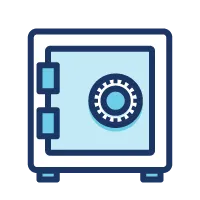Key Takeaways
- Commission only pays your kids for work that is done.
- Teach children that money comes from working.
- As your children get older, their income should increase.
One of the first opportunities for children to learn about money is in the common practice of receiving an allowance. As a parent, you might wonder whether it’s a good idea or not to give your child an allowance and what exactly this teaches them. It's a decision that can spark debate among families and experts alike.
On one hand, some argue that giving children an allowance teaches them valuable lessons about money management and responsibility. On the other hand, there are those who believe that children should not be paid for basic household chores or tasks that they should be doing as part of being a member of the family.
So, should you pay your kids an allowance? Here we’ll provide an alternative way of looking at allowances that may help guide your decision.
What is an Allowance?
An allowance is an amount of money your child receives regularly for participating in household chores.
However, in most cases children still receive the allowance even if the chores weren’t done. Whether they’ve earned it or not, kids are likely still getting an allowance every week. In other words, an allowance gives your kids money whether they’ve earned it or not.
When handled this way, an allowance isn’t a great long-term plan for teaching your kids about money. The idea behind giving your child an allowance is for them to learn how to manage money.
But if kids learn early on that money comes in each week whether or not work was performed, what they are really learning is that they’re entitled to money each week.
One of the best financial principles you can instill in your child at a young age is that money comes from work, not from the human ATM known as Mom or Dad.
Paying a Commission Instead of an Allowance
An alternative way of looking at an allowance that better teaches the principle of earning money is paying your child commission. When you start paying your child a weekly “commission,” they learn that money comes from work. They also learn that when they don’t work, they don’t earn any money.
The reason this works so well, especially in today’s culture, is because of the problems created with entitlement. Kids feeling entitled to an allowance can set them up for a future of disappointment. Sure, it’s easy to set up a weekly allowance and pay your child or teenager for work they may not have done, but how well will that translate into adulthood?
But when your child or teenager feels the disappointment of their commission payment being cut in half for skipping out on a chore, they also learn a valuable lesson: money comes from work.
How Much Commision Should I Pay My Kids?
The good news is there isn’t a right or wrong answer as to how much you pay your kids. Everyone will be a little different and it’s based on many different factors.
First, how much commission can you afford to pay within your budget each month? What kind of jobs will you have your child doing and how long will it take them to complete?
If you’re still looking for a commission rule, one that is widely accepted is to pay your child between $1 and $2 a week per their age.
When determining how much to pay your child for work, try starting off between $1 and $2 a week per their age.
For example, a 6-year-old would earn between $6 and $12 per week whereas a 14-year-old would earn between $14 and $28 per week.
Do I Pay My Kids for Every Chore?
Not every chore your kids do should translate into earning income. There are certain chores that are part of everyday life. Making their bed, taking out the trash, and picking up after the dog may be chores you decide are part of living under your roof.
However, larger tasks like cleaning the pool each week, mowing the lawn, mopping the floors, or washing the car could be chores that you decide are for commission.
Don’t get too worried about which chores are part of living in the house and which chores are commission-based. The goal is for your kids to learn early on in life that not every job we do will turn into income.
Should I Require My Kids to Save and Give?
It is perfectly okay and wise to have your kids both save some of their money while learning to also be generous with their money. Studies show that the wealthiest people are the same people who are natural savers and who are generous with their wealth.
Plus, if you can help your kids build habits at a young age of setting aside money for both savings and giving, they’re much more likely to save and give when they become adults.
When Should My Child Open a Bank Account?
As soon as your child turns 13, help them open a teen checking account.
A teen checking account allows your teenager to become the primary account holder while also giving parents control over the account. This is a great way to guide your child into learning how to manage their finances while also utilizing a bank account.
Teaching your children financial responsibility is one of the many important lessons on your plate as a parent. By choosing to pay your child a commission instead of an allowance, you’re instilling a good work ethic throughout their life while also teaching them the true value of a dollar.
Whatever you decide on the topic of allowance, the most important thing is to communicate openly with your kids about money and help them develop the skills they need to thrive financially in the future.
Chris “Peach” Petrie is the founder of Money Peach. Money Peach partnered with OneAZ to provide free financial education to members across the state. To learn more about OneAZ’s partnership with Money Peach, click here.
APR = Annual Percentage Rate












